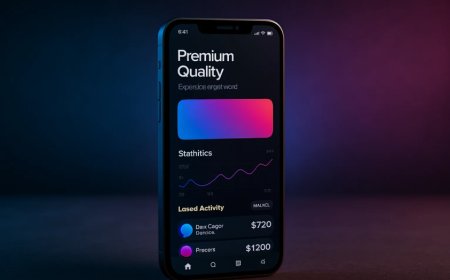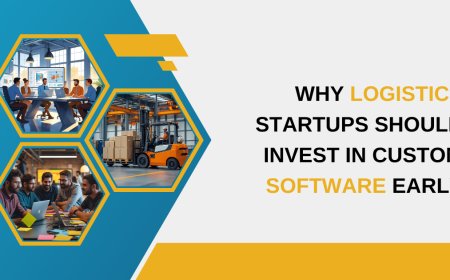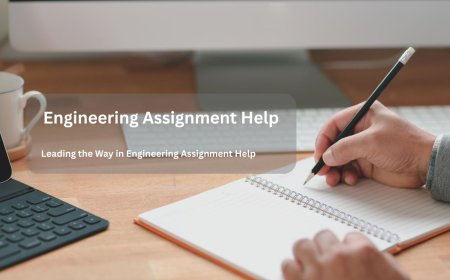How Is AI Agent Token Development Changing Web3 Applications?

The intersection of artificial intelligence (AI) and blockchain technology has created one of the most dynamic and transformative trends in the digital world today. AI agent token development is emerging as a groundbreaking force in shaping Web3 applications, redefining how decentralized networks operate and deliver value. By embedding intelligent, autonomous agents within blockchain ecosystems through tokenization, Web3 is evolving beyond simple decentralized finance (DeFi) or non-fungible tokens (NFTs) to more adaptive, self-governing, and efficient systems. This blog explores the profound impact of AI agent token development on Web3 applications, analyzing the technological, economic, and social changes driving this revolution.
The Rise of AI Agent Tokens in Web3
At its core, AI agent token development involves creating tokens that represent autonomous AI agents capable of interacting, learning, and making decisions within decentralized environments. Unlike traditional utility or governance tokens, these AI agent tokens encapsulate sophisticated algorithms and machine learning models, allowing them to perform functions such as data analysis, trade execution, resource management, and governance participation without human intervention.
The advent of such tokens marks a new phase in Web3 development, where intelligent agents can act on behalf of users or communities, executing complex tasks faster and more reliably than manual systems. This innovation stems from the convergence of AIs capacity to learn and adapt with blockchains secure, transparent, and decentralized infrastructure.
Enhancing Decentralized Finance with AI Agent Tokens
One of the earliest and most visible domains benefiting from AI agent tokens is decentralized finance. Traditional DeFi platforms rely heavily on smart contracts that execute predefined rules. However, they lack the flexibility and adaptability that AI agents introduce.
AI agent tokens can autonomously monitor market conditions, analyze real-time data feeds, and execute trades or liquidity adjustments to optimize yield farming and staking strategies. This ability to self-manage portfolio allocations and respond to market volatility reduces risks for investors and enhances the overall efficiency of DeFi ecosystems.
Moreover, these tokens enable the creation of AI-powered decentralized hedge funds and robo-advisors that function entirely on-chain, governed by AI agents rather than human managers. This shift democratizes financial services, offering sophisticated asset management tools to a broader user base without centralized intermediaries.
Driving Smarter Governance in DAOs
Decentralized Autonomous Organizations (DAOs) are another critical area where AI agent tokens are reshaping Web3. Governance in DAOs traditionally involves token holders voting on proposals, but this system can be slow, inefficient, and susceptible to manipulation or voter apathy.
AI agent tokens can serve as intelligent delegates within DAO governance frameworks. Equipped with the ability to analyze proposal data, predict outcomes, and learn community preferences, these AI agents can cast votes or recommend decisions on behalf of users, increasing participation rates and decision-making quality.
Additionally, AI agents can identify governance risks, flag potential attacks such as vote buying, and optimize governance parameters dynamically to improve transparency and fairness. This not only streamlines DAO operations but also helps build more resilient decentralized communities.
Improving Data Privacy and Interoperability
Data privacy and interoperability remain challenging areas for Web3 projects. AI agent tokens bring new possibilities by enabling secure data sharing and management without compromising user privacy.
Through advanced techniques like federated learning and secure multi-party computation, AI agents embedded in tokens can collaborate across different blockchain networks to train models or share insights without exposing raw user data. This approach strengthens data privacy while unlocking cross-chain interoperability.
Furthermore, AI agents can act as intelligent oracles that verify and validate off-chain data inputs with higher accuracy, reducing vulnerabilities caused by faulty or malicious data feeds. As a result, Web3 applications become more robust and trustworthy.
Empowering AI-Powered Marketplaces and NFT Ecosystems
AI agent tokens are also transforming marketplaces, particularly those related to NFTs and digital assets. AI agents can automate various marketplace functions, such as dynamic pricing, fraud detection, and personalized recommendations.
For NFT creators and collectors, AI tokens provide tools to manage collections more intelligently. They can monitor market trends, identify emerging artists or projects, and suggest optimal times to buy or sell assets based on predictive analytics.
In digital art and gaming ecosystems, AI agents facilitate the creation of adaptive NFTs that evolve based on user interactions or environmental factors. This adds a new layer of utility and engagement to digital assets, making the NFT experience more immersive and meaningful.
Facilitating Autonomous Web3 Infrastructure
Beyond applications, AI agent tokens contribute to the development of autonomous Web3 infrastructure. These tokens can represent network nodes or services that self-optimize, self-heal, and coordinate without human intervention.
For instance, AI agents can manage decentralized storage networks by optimizing data distribution and replication based on demand and resource availability. Similarly, AI-driven validator nodes in proof-of-stake blockchains can adjust staking strategies or detect security threats proactively.
This autonomous infrastructure reduces operational costs, increases resilience, and enables Web3 networks to scale more efficiently as user demand grows.
Challenges in AI Agent Token Development
While AI agent tokens bring transformative potential, their development is not without challenges. One key issue is the complexity of integrating AI algorithms securely on decentralized networks. Smart contracts are immutable, but AI models often require continuous training and updates, which complicates deployment.
Additionally, transparency is a concern. The decision-making processes of AI agents, especially those based on deep learning, can be opaque, making it difficult for token holders to fully understand or trust their actions. This raises questions about accountability and governance in autonomous systems.
Scalability is another obstacle. Running AI computations on-chain is resource-intensive and costly, necessitating hybrid solutions that offload AI tasks off-chain while ensuring trust through cryptographic proofs or trusted execution environments.
Finally, regulatory uncertainty around AI decision-making in financial or governance contexts could slow adoption or lead to compliance challenges as jurisdictions catch up with technological advances.
The Future Outlook: Synergies Between AI, Tokenomics, and Web3
Despite these hurdles, the future of AI agent tokens in Web3 appears highly promising. As blockchain platforms evolve with scalability improvements like Layer 2 solutions and rollups, they will better support the computational demands of AI agents.
Emerging trends point towards increasingly sophisticated AI token models that combine tokenomics incentives with autonomous decision-making to create self-sustaining ecosystems. For example, AI agents could dynamically manage token supply and demand or coordinate decentralized liquidity pools in real time.
Moreover, as AI becomes more explainable and transparent, trust in autonomous agents will grow, enabling wider acceptance in critical Web3 applications ranging from finance to governance to identity verification.
Cross-industry collaborations between AI developers, blockchain engineers, and regulatory bodies will be essential to unlock the full potential of AI agent tokens while addressing ethical and legal considerations.
Conclusion
AI agent token development is a catalyst for the next wave of innovation in Web3, fundamentally altering how decentralized applications operate and deliver value. By embedding intelligent, autonomous agents within tokenized ecosystems, Web3 gains unprecedented capabilities in finance, governance, privacy, marketplaces, and infrastructure.
These AI-powered tokens enable more adaptive, efficient, and user-centric decentralized systems that can learn, respond, and evolve autonomously. While challenges remain around integration, transparency, and regulation, ongoing technological advances and industry collaboration will likely overcome these barriers.
As AI agent tokens continue to mature, they will play a pivotal role in shaping the decentralized future, empowering users and communities with intelligent autonomy that drives deeper adoption and broader impact across the Web3 landscape.

























